Filter by
Entertaining the idea : shakespeare, performance, and philosophy
To entertain an idea is to take it in, pay attention to it, give it breathing room, dwell with it for a time. The practice of entertaining ideas suggests rumination and meditation, inviting us to think of philosophy as a form of hospitality and a kind of mental theatre. In this collection, organized around key words shared by philosophy and performance, the editors suggest that Shakespeare’s …
- Edition
- -
- ISBN/ISSN
- 9781487536237
- Collation
- ix, 237 p.
- Series Title
- -
- Call Number
- 822.33 GAL e
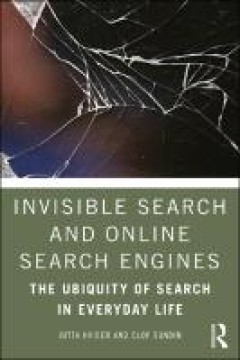
Invisible search and online search engines
Invisible Search and Online Search Engines considers the use of search engines in contemporary everyday life and the challenges this poses for media and information literacy. Looking for mediated information is mostly done online and arbitrated by the various tools and devices that people carry with them on a daily basis. Because of this, search engines have a significant impact on the structur…
- Edition
- -
- ISBN/ISSN
- 9780429448546
- Collation
- viii, 151 p. : ind. ; 24 cm
- Series Title
- -
- Call Number
- 025.0425 HAI i
Ageing with smartphones in Ireland : when life becomes craft
There are not many books about how people get younger. It doesn’t happen very often. But Ageing with Smartphones in Ireland documents a radical change in the experience of ageing. Based on two ethnographies, one within Dublin and the other from the Dublin region, the book shows that people, rather than seeing themselves as old, focus on crafting a new life in retirement. Our research particip…
- Edition
- -
- ISBN/ISSN
- 9781787359666
- Collation
- xiii, 232 p. : color, ill.
- Series Title
- -
- Call Number
- 303.4834084609415 GAR a
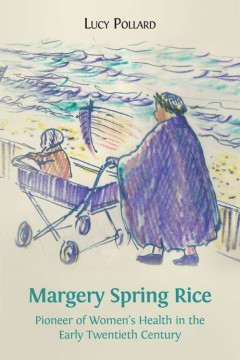
Margery spring rice: pioneer of women’s health in the early twentieth century
This book vividly presents the story of Margery Spring Rice, an instrumental figure in the movements of women’s health and family planning in the first half of the twentieth century. Margery Spring Rice, née Garrett, was born into a family of formidable female trailblazers – niece of physician and suffragist Elizabeth Garrett Anderson, and of Millicent Fawcett, a leading suffragist and cam…
- Edition
- -
- ISBN/ISSN
- 9781783748839
- Collation
- xiv, 196 p. : ill. : ind. ; 24 cm
- Series Title
- -
- Call Number
- 305.42092 POL m
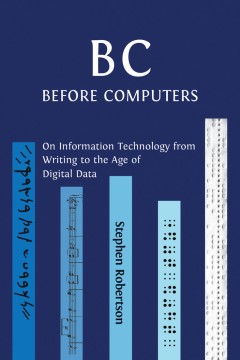
B C, Before Computers : on information technology from writing to the age of …
I found it a delight to read. The author is not trying to write yet another book on the history of computer developments but rather to show that those developments rely on a long history of humans creating solutions to problems that arose as they became more and more sophisticated in their treatment of concepts of information and its manipulation. In many ways it resembles a work of philosophy …
- Edition
- -
- ISBN/ISSN
- 9781800640313
- Collation
- 170p.: colour, ill.
- Series Title
- -
- Call Number
- 004.09 B r
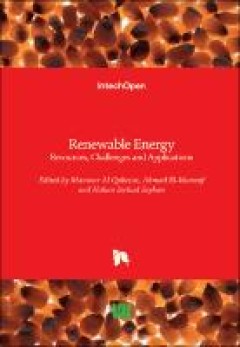
Renewable energy : resources, challenges and applications
The demand for secure, affordable and clean energy is a priority call to humanity. Challenges associated with conventional energy resources, such as depletion of fossil fuels, high costs and associated greenhouse gas emissions, have stimulated interests in renewable energy resources. For instance, there have been clear gaps and rushed thoughts about replacing fossil-fuel driven engines with ele…
- Edition
- -
- ISBN/ISSN
- 9781839621550
- Collation
- xxi, 519 p. : ill.
- Series Title
- -
- Call Number
- 333.794 ALQ r
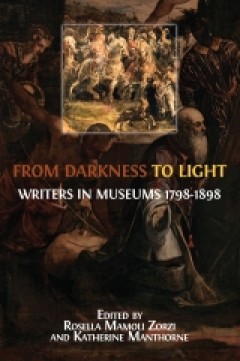
From darkness to light: writers in museums 1798-1898
Written by an array of international experts, these collected essays gather perspectives from a diverse range of cultural sensibilities. From sensitive discussions of Tintoretto’s unique approach to the play of light and darkness as exhibited in the Scuola Grande di San Rocco in Venice, to the development of museum lighting as part of Japanese artistic self-fashioning, via the story of an epi…
- Edition
- -
- ISBN/ISSN
- 9781783745517
- Collation
- xviii, 371 p. : ill. : ind. ; 24 cm
- Series Title
- -
- Call Number
- 729.28 FRO f
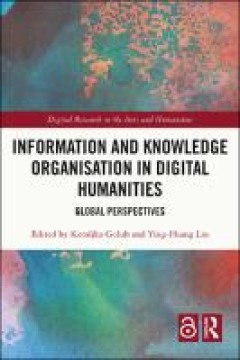
Information and knowledge organisation in digital humanities: global perspect…
Information and Knowledge Organisation explores the role of knowledge organisation in the digital humanities. By focusing on how information is described, represented and organised in both research and practice, this work furthers the transdisciplinary nature of digital humanities. Including contributions from Asia, Australia, Europe, North America and the Middle East, the volume explores the p…
- Edition
- -
- ISBN/ISSN
- 9781003131816
- Collation
- xxiii, 290 p. : ill.
- Series Title
- Digital Research in the Arts and Humanities
- Call Number
- 658.038 GOL i
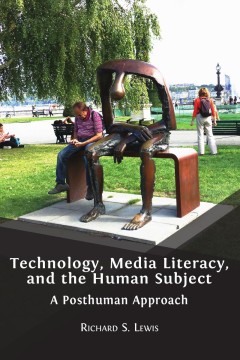
Technology, media literacy, and the human subject: a posthuman approach
What does it mean to be media literate in today’s world? How are we transformed by the many media infrastructures around us? We are immersed in a world mediated by information and communication technologies (ICTs). From hardware like smartphones, smartwatches, and home assistants to software like Facebook, Instagram, Twitter, and Snapchat, our lives have become a complex, interconnected netwo…
- Edition
- -
- ISBN/ISSN
- 9781800641846
- Collation
- x, 247p. : ill.
- Series Title
- -
- Call Number
- 302.23 LEW t
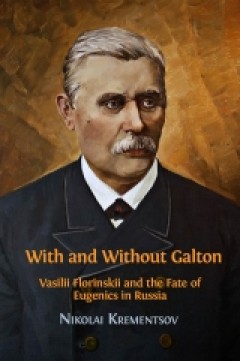
With and without Galton: Vasilii Florinskii and the fate of eugenics in Russia
In 1865, British polymath Francis Galton published his initial thoughts about the scientific field that would become ‘eugenics.’ The same year, Russian physician Vasilii Florinskii addressed similar issues in a sizeable treatise, entitled Human Perfection and Degeneration. Initially unheralded, Florinskii’s book would go on to have a remarkable afterlife in twentieth- and twenty-first-cen…
- Edition
- -
- ISBN/ISSN
- 9781783745135
- Collation
- xxv, 666 p. : ill. : ind. ; 24 cm
- Series Title
- -
- Call Number
- 363.92 KRE w
 Computer Science, Information & General Works
Computer Science, Information & General Works  Philosophy & Psychology
Philosophy & Psychology  Religion
Religion  Social Sciences
Social Sciences  Language
Language  Pure Science
Pure Science  Applied Sciences
Applied Sciences  Art & Recreation
Art & Recreation  Literature
Literature  History & Geography
History & Geography